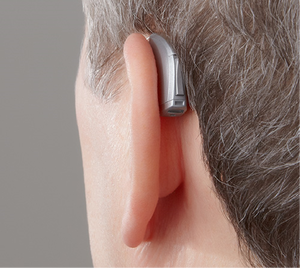How to Choose the Right Hearing Aid?
Body
Are you concerned about your hearing? Have you had your hearing tested recently?
Hearing loss may occur due to any number of factors, including this simplicity of growing older. No matter what the reason is, it can have an immense impact on your quality of life. You may experience a problem in understanding what others are saying, which might hamper your social life. A hearing aid can make a difference in your lifestyle when your hearing ability is decreased. It can help amplify the sounds. However, there are different types of hearing aids that are suitable for different levels of hearing loss. Your hearing aid practitioner will help you pick the right type of hearing aid.
Do you need a hearing aid? If you’re experiencing any of the following symptoms, you may also be experiencing hearing loss, and thus it might be time for hearing aids. A hearing aid practitioner will know better, once you undergo a few hearing tests.
There are a number of warning signs and changes in behavior associated with hearing loss.
- Thinking that other people are mumbling.
- Asking people to repeat what they are saying, especially in noisy or crowded places.
- Watching television on louder volume than normal.
- Having difficulty in understanding what others say in social gatherings.
- Finding my own impatience and irritability.
- Having trouble conversing with someone over the phone.
How Hearing Aid Can Help?
If you are facing hearing issues, you may need hearing aids which can help you. A hearing aid is an electronic device that is run by the power of the battery. It is designed to improve your hearing. Although there are different types of hearing aids, most of them are small enough to wear behind or in the ear. It makes sounds louder and helps you hear better. It consists of-
- A microphone that brings the sound closer to you.
- An amplifier that makes the sound louder.
- A receiver that sends the augmented sounds into the ear.
Different Styles of Hearing Aids:
Hearing aids can vary from each other to a great degree regarding size, features, price and the way to be placed in the ear.
Completely in the Canal
A completely-in-the-canal hearing aid is designed to fit inside the ear canal. It can help in mild to moderate levels of hearing loss in adults. It is the smallest and the least visible type of hearing aid. It is powered by small batteries that have shorter lives. This type of hearing aid does not contain additional features such as volume control or a directional microphone.
In the Canal
In-the-canal is a type of hearing aid that fits partially in the ear canal. Like completely-in-the-canal, it is also an ideal solution for mild to moderate hearing loss in adults. The size is larger than the completely-in-the-canal model. It is susceptible to earwax that can clog the speaker.
Behind the Ear
This type of hearing aid is visible over the top of the ear and behind the ear. It consists of a tube that connects the hearing aid to an earpiece known as earmold. The earpiece fits into the ear canal. A hearing problem can be treated with this type of hearing aid in people of all ages and with any level of hearing loss. It is the traditional form of hearing aid that comes in the largest form. However, today it is also available in a few newer mini designs. It has a better ability to amplify the sounds than other styles of hearing aid.
Receiver in Canal
Receiver-in-canal or receiver-in-the-ear is similar to the behind-the-ear style that contains a speaker or receiver to fit in the canal or in the ear. The pieces are connected by a tiny wire. The behind the ear part of this style of hearing aid is less visible.
Considerable Factors to Choose a Hearing Aid:
When you see the hearing aid practitioner, he or she will assist you to choose the right hearing aid as per your requirement. Apart from the style of hearing aid, there are several other factors to determine which type of hearing aid you need.
Look for the Right Size
Different styles of hearing aids come in various sizes. A hearing aid that can be handled easily and fits your ear comfortably is the right choice for you.
Find the Right Fit
A style of hearing aid rests behind the ear whereas another fits inside the ear. The style that includes a part behind the ear, is easy to see and it has larger controls and dials. On the other hand, inside the ear hearing aid is hard to see. You can ask the doctor, which one is the right choice for you.
Try Different Types
It is necessary to try various types of hearing aids to find out which one works best. For instance, a whistling sound may come out of the earmold if it does not fit into your ear correctly. This makes hearing difficult. Some hearing aids may cause more feedback than others.
Conclusion:
Apart from this, you can find a lot of additional features in the hearing aids, from which you need to choose as per your lifestyle needs and requirements. Some special features include noise reduction, rechargeable batteries, remote controls, environmental noise control, direct audio input etc.
Also, once you get the right hearing aid, don’t forget to schedule regular maintenance visits to keep your hearing devices properly adjusted for your needs.














Comments